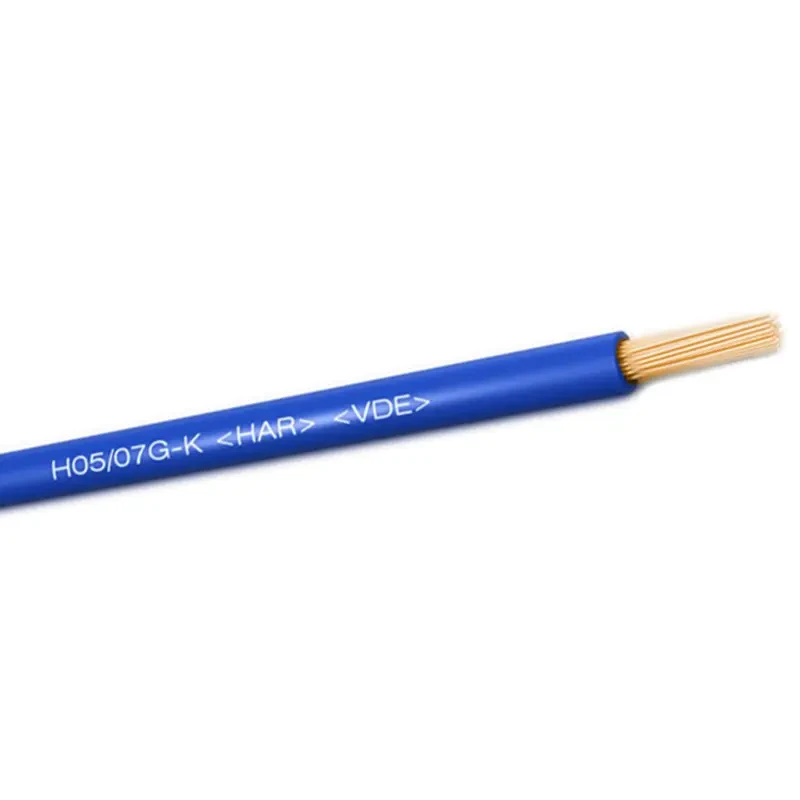RUBBER CABLE
Rubber flex cable, also known as flexible rubber cable, is a type of electrical cable designed with a flexible rubber insulation and sheathing. This type of cable is known for its pliability and durability, making it suitable for applications where flexibility and resistance to mechanical stress are essential. Rubber flex cable is commonly used in environments where standard rigid cables may not be suitable, such as in portable power tools, industrial machinery, construction sites, and outdoor applications.
The flexibility of rubber flex cable allows it to be easily bent, twisted, and maneuvered, making it ideal for use in situations where the cable needs to move or be repositioned frequently. The rubber insulation and sheathing provide protection against abrasion, oils, chemicals, and other environmental factors, making it well-suited for demanding industrial and outdoor environments.
Rubber flex cable is available in various configurations and conductor sizes to accommodate different voltage and current requirements. It is often color-coded for easy identification of conductors and is designed to meet safety and performance standards for electrical wiring.
In summary, rubber flex cable is a versatile and durable electrical cable designed for applications that demand flexibility, resilience, and resistance to harsh conditions.
What Is Rubber Cable Used For?
Rubber cable, also known as rubber-insulated cable, is used in a variety of applications that require flexibility, durability, and resistance to environmental factors. Some common uses of rubber cable include:
Portable Power Tools: Rubber cable is often used to supply power to portable power tools and equipment, providing the flexibility and durability needed for use in construction sites, workshops, and industrial settings.Outdoor and Temporary Installations: Rubber cable is suitable for outdoor use and temporary installations, such as outdoor events, festivals, and construction projects, where it can withstand exposure to weather conditions and physical stress.Industrial Machinery: Rubber cable is employed in industrial machinery and equipment where flexibility and resistance to mechanical stress are essential, allowing for reliable power supply in dynamic and demanding environments.Mining and Quarrying: Rubber cable is used in mining and quarrying operations, providing a robust and flexible electrical connection for equipment used in these rugged and challenging environments.
Stage and Entertainment Lighting: Rubber cable is utilized in stage and entertainment lighting applications, where its flexibility and durability make it well-suited for use in theatrical productions, concerts, and events.
What Is A Rubber Cable And What Are Its Key Benefits?
A rubber cable is a type of flexible electrical cable that uses natural or synthetic rubber compounds as its insulation and protective sheath. Unlike traditional PVC or thermoplastic cables, rubber cables are designed to remain flexible, durable, and resistant to mechanical stress even in demanding environments. This makes them a popular choice for temporary power supplies, outdoor installations, industrial machinery, and portable equipment.
The key benefit of rubber cables is their excellent flexibility, which allows them to be bent, coiled, and moved repeatedly without cracking or losing performance. This property is especially useful in construction sites, stage and event setups, and mining operations, where cables must withstand frequent handling and mechanical stress. In addition, rubber insulation provides strong resistance to abrasion, impact, and cuts, making the cable durable even in rough conditions.
Another major advantage is resistance to environmental factors. Rubber cables typically perform well under extreme temperatures, remaining flexible in cold climates and stable under heat. They are also resistant to moisture, oils, UV radiation, and many chemicals, which extends their service life when used outdoors or in industrial environments.
Rubber cables are commonly used for welding machines, portable tools, power distribution at construction sites, audio-visual equipment, and temporary event power setups. Safety is another strong point, as rubber insulation provides good dielectric strength and reduces risks of electrical shocks or short circuits.
In summary, rubber cables combine flexibility, durability, and environmental resistance, making them a reliable solution for applications where ordinary cables would wear out quickly. Their versatility and robust performance explain why they are widely used across industries that demand safe and long-lasting power connections.











